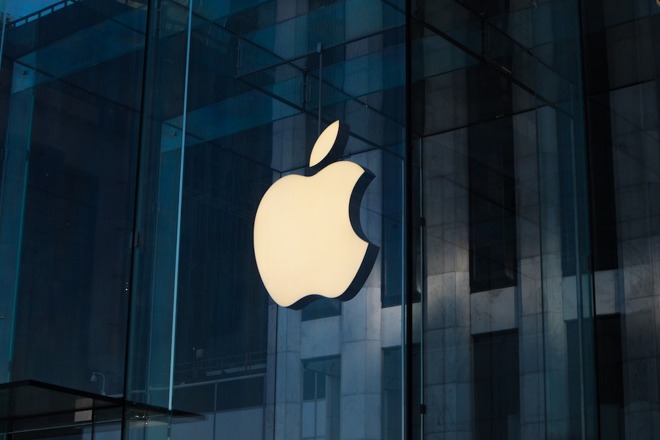Apple says reduction in App Store commission rate would impact bottom line
Apple warned investors that changes to its App Store commission could hurt its bottom line in a regulatory filing that also highlighted the MacBook Pro as the primary driver of 2020 Mac sales.

Credit: WikiCommons
Both tidbits were included in Apple's Form 10-K for its 2020 fiscal year. Form 10-K is a summary of a company's financial status that the Securities and Exchange Commission requires of companies that meet specific criteria.
Amid scrutiny of its 30% commission on in-app purchases and subscriptions, Apple cautioned investors in this year's 10-K that any changes to that cut could negatively impact its financial results.
"If the rate of the commission that the Company retains on such sales is reduced, or if it is otherwise narrowed in scope or eliminated, the Company's financial condition and operating results could be materially adversely affected," Apple wrote in the filing.
Apple has come under fire from from antitrust regulators, lawmakers, and developers for imposing a 30% cut on App Store sales. Some of the most notable critics include Microsoft, Facebook, and Epic Games.
The filing also reveals that Apple has indeed seen tailwinds from new work-at-home and remote learning trends during the coronavirus pandemic.
Net sales of MacBook Pro models, for example, were highlighted at the primary reason for an overall uptick in Mac sales throughout 2020. Sales of iPads were also up, and attributed to 10-inch versions of the iPad, iPad Air, and iPad Pro.
Beyond the details about the App Store commission and Mac and iPad sales, most other data in the filing appeared routine. Taxes were nominal, and was only a typical increase in Apple's research and development spending.
Credit: WikiCommons
Both tidbits were included in Apple's Form 10-K for its 2020 fiscal year. Form 10-K is a summary of a company's financial status that the Securities and Exchange Commission requires of companies that meet specific criteria.
Amid scrutiny of its 30% commission on in-app purchases and subscriptions, Apple cautioned investors in this year's 10-K that any changes to that cut could negatively impact its financial results.
"If the rate of the commission that the Company retains on such sales is reduced, or if it is otherwise narrowed in scope or eliminated, the Company's financial condition and operating results could be materially adversely affected," Apple wrote in the filing.
Apple has come under fire from from antitrust regulators, lawmakers, and developers for imposing a 30% cut on App Store sales. Some of the most notable critics include Microsoft, Facebook, and Epic Games.
The filing also reveals that Apple has indeed seen tailwinds from new work-at-home and remote learning trends during the coronavirus pandemic.
Net sales of MacBook Pro models, for example, were highlighted at the primary reason for an overall uptick in Mac sales throughout 2020. Sales of iPads were also up, and attributed to 10-inch versions of the iPad, iPad Air, and iPad Pro.
Beyond the details about the App Store commission and Mac and iPad sales, most other data in the filing appeared routine. Taxes were nominal, and was only a typical increase in Apple's research and development spending.

Comments
The problem is, Millennials and other morons grew up entitled. They want your stuff for free.
Yeah, nobody could ever prove this, but I think at least some of it has to do with the co-founder. Guy wasn’t an [actual] engineer, wasn’t a “business type”; dropped out of a non-Ivey-league institution and built the world’s most kickass tech company and showed the world what’s up and made it look fucking easy.
Yeah, nobody could ever prove this, but I think at least some of it has to do with the co-founder. Guy wasn’t an [actual] engineer, wasn’t a “business type”; dropped out of a non-Ivey-league institution and built the world’s most kickass tech company and showed the world what’s up and made it look fucking easy.
The real question is whether 30% is considered fair, or even whether Apple will need to allow app developers for it's devices to be able to distribute directly or not. Think about it...given your examples (or any industry, really), a manufacturer is not restricted from selling direct. They can sell through retail or they can sell direct, where they are in control of the costs to sell their own products. It's the same thing here.
The issue revolves around whether Apple should be the only entity allowed to operate an App Store on iDevices.
That is a completely different angle.